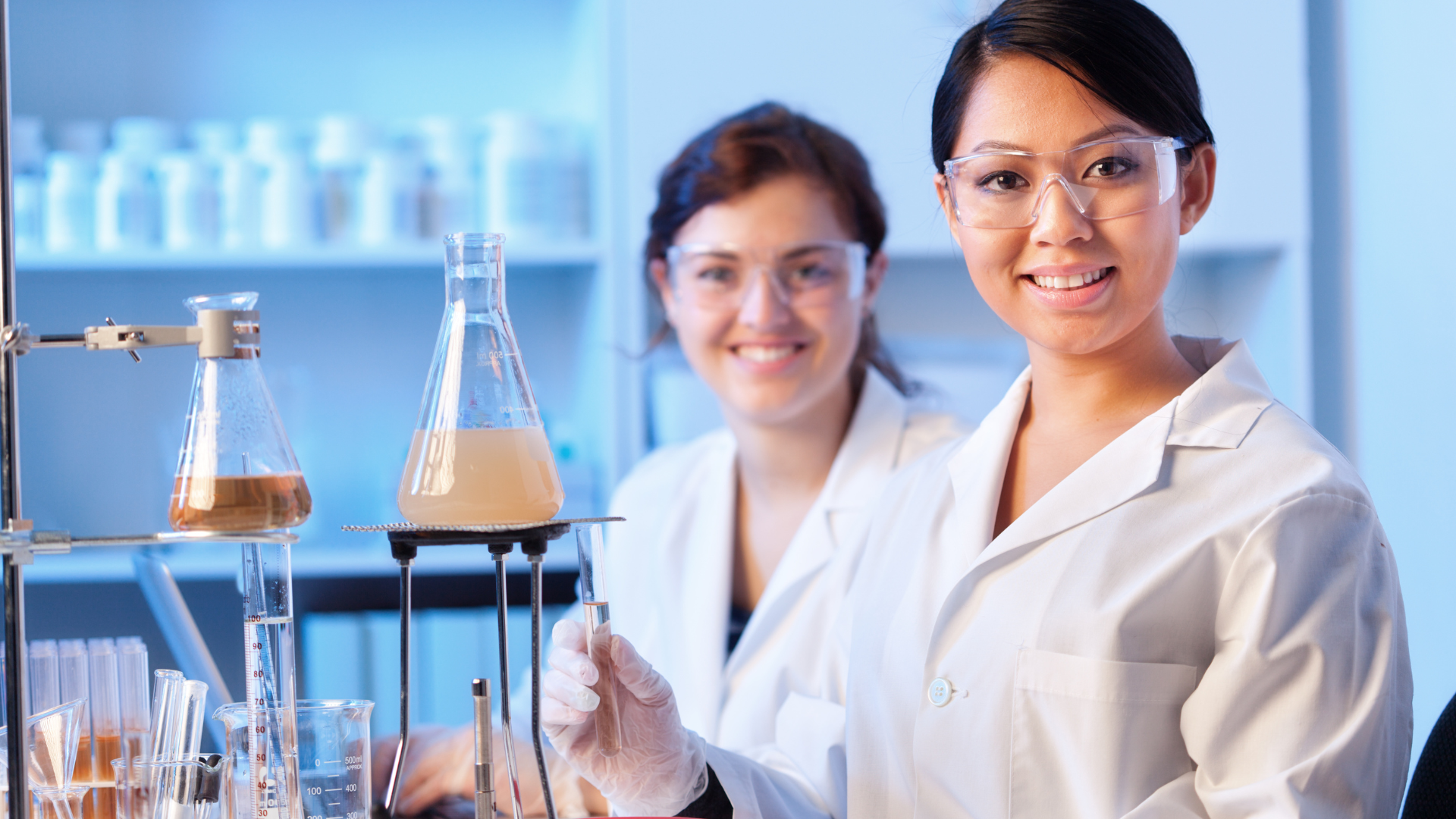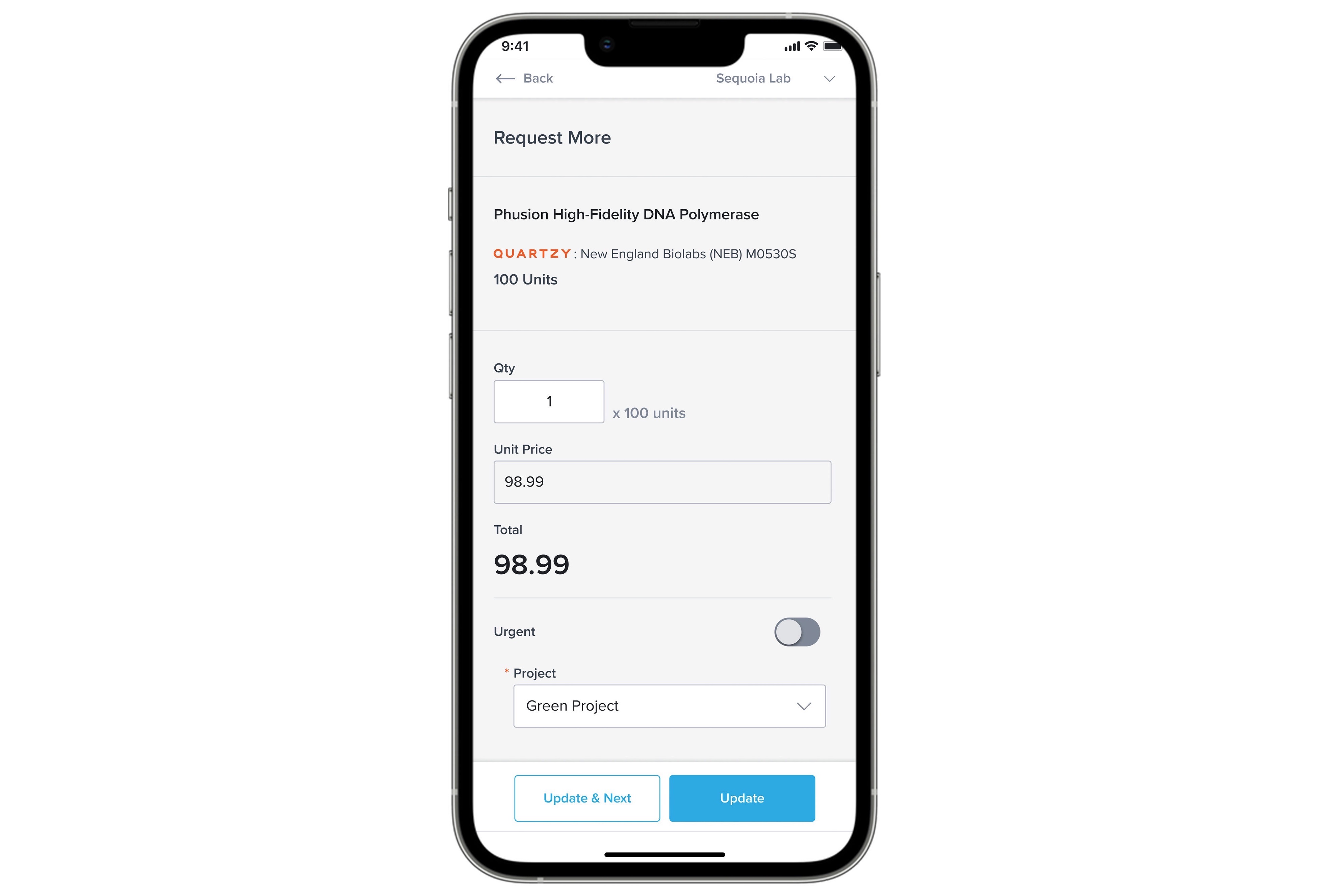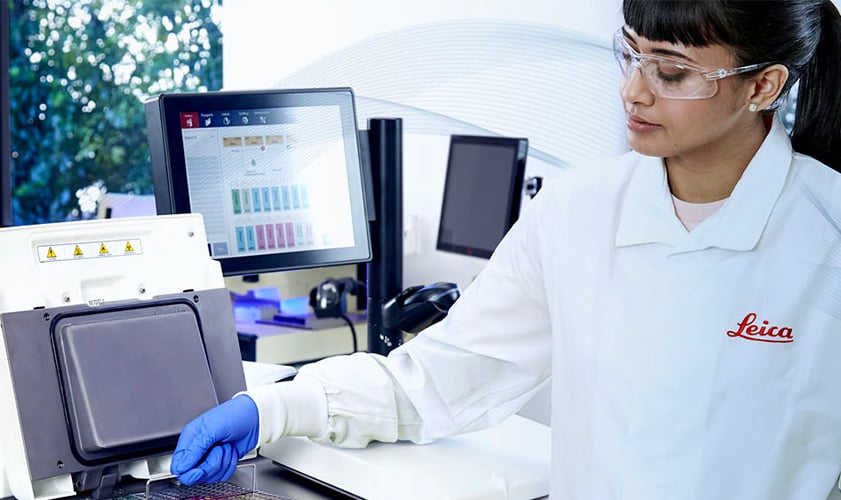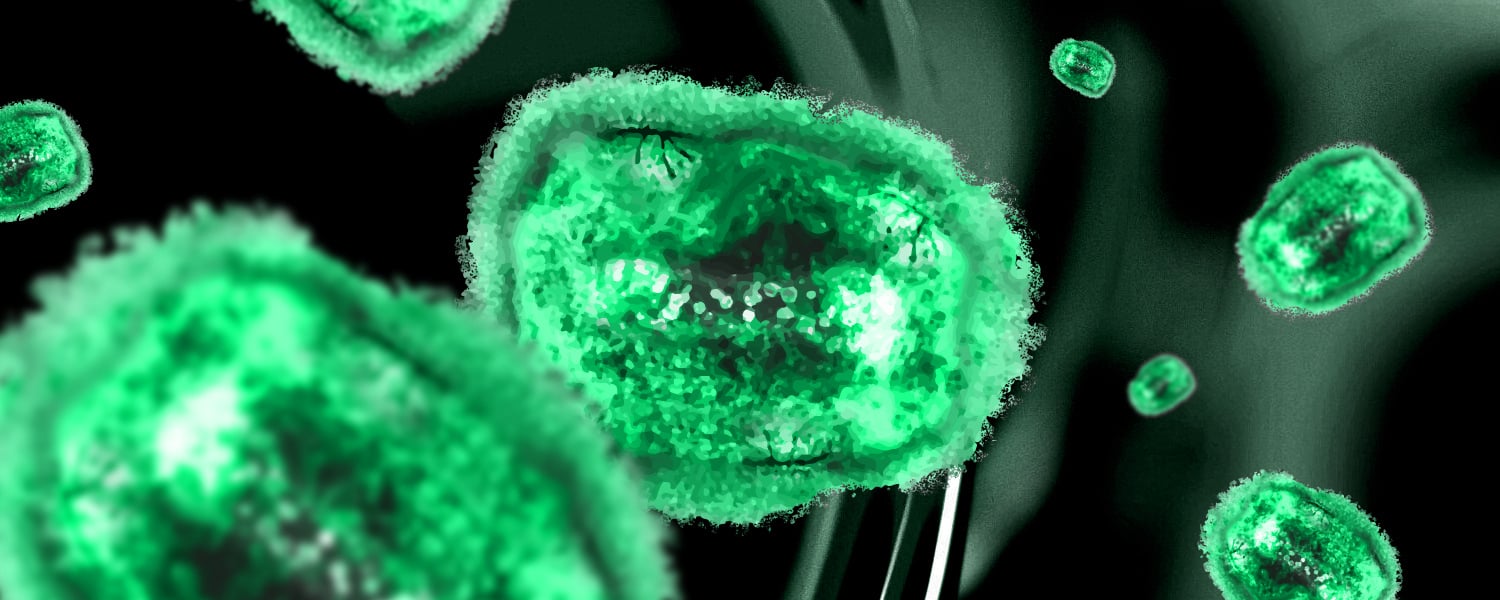-
Overview
Great research starts with great lab management
-
Inventory
Track every important detail for any lab supply
-
Requests
Streamline ordering workflows, procurement, and delivery tracking
-
Shop
Shop and buy over 10 million products from brands you trust
-
Integrations
Quartzy supports the integration of thousands of applications
-
Quartzy Resources
Briefs, Guides, Infographics, Videos, On-Demand Webinars
-
Upcoming Events
Quartzy University, local user groups, thought-leadership webinars and more
-
Customer Stories
See how science teams across every industry use Quartzy
-
The Q Blog
Your destination for lab life & scientific discovery








